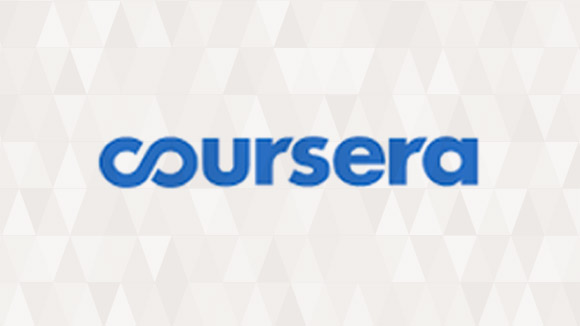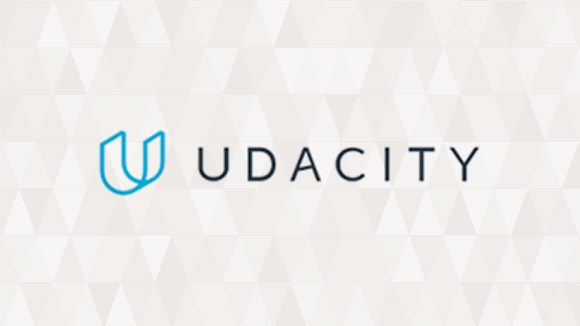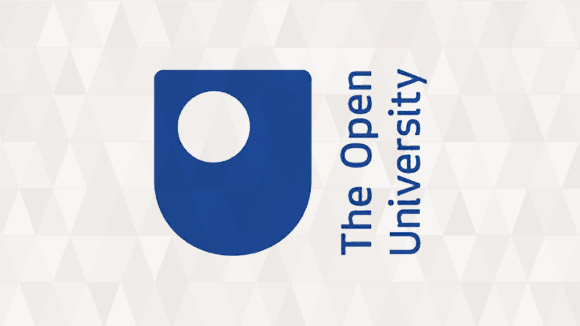Tips and Advice
We have spoken with a number of scholarship recipients, who gave us tips and advice learned through their own experiences.
Not sure what subject to study? Where and what is the best way to research a scholarship? Looking for the university that best suits you?
These are all daunting and confusing questions to answer. We believe there is nothing better than first-hand advice and tips, so with this in mind we have spoken with a number of scholarship students who have shared their wisdom with us.
General Advice and Tips
Do your research.
Properly research the funder pre-application, are there any alumni or existing scholars they are supporting that you can contact. The more you can match your profile to a successful scholar and reference them in your application the better.
Go for it! don’t be put off by the competition.
Every applicant is scared of the competition just like you, but somebody has got to win those scholarships, right? It can be you. A lot of scholarship winners often say they would not have applied had they known how competitive the process was. But they did apply, and they got it. Be bold.
It takes many applications to win one and, if possible, try again and again.
A lot of Scholars won the scholarship in their second, third or fourth attempt. A failed attempt is not a waste of time. Each attempt prepares you better for the next one. Cast your net wide, but make sure you are not compromising on the quality of individual submission. Maybe, each year pick five or six scholarships for which there is a real potential and do them well rather than using a ‘spray and pray’ technique. If you receive feedback from one, use it to improve the next application.
Look for national, regional and international opportunities.
There are different programmes you might be interested in across the continent be it in your home country or another country. Research all and make your decision on what suits you best.
Take into account a number of financial commitments you will need to make during the application process:
This is often very expensive. And if you fail the test and you must re-sit it, you have to pay again. If you get the scores you need but the test result expires, after two years for IELTS and TOEFL, you must take the test again and pay again.
So prepare properly, don’t assume you will pass just because you speak the language fluently. Make sure you know exactly what will be required from you and keep practising.
The little things matter: Take a bottle of water, the test takes in the region of 3 hours and it might not be provided.
Use the restrooms before the exam starts, if you need to use them during the test you will lose time.
During the listening test, be prepared for quiet audio or audio that you are unable to properly hear, if you spend too much time asking for explanation or help with the equipment, you might not be able to complete the test.
Keep a watch on the time, invigilators are very strict and will not let you finish off a word or sentence.
Do some research to see if you can access any of these:
-
Are there organisations that give away or loan preparatory textbooks and resources such as CDs for listening practice, which you might need for your test?
-
Does the organisation that offers the test services also provide preparatory classes at an affordable price?
-
Are there cheaper alternatives?
-
What are the resources available on YouTube or the rest of the WWW that might help prepare you?
Interview
If you need to travel to the interview, take into account the cost of travel and if necessary, the cost of accommodation.
If your interview is by skype you might need to pay internet costs to hold the skype or be asked to use a hotel facility with reliable internet facilities. This might be costly.
Be ambitious and communicate those ambitions boldly. You will often be asked what you want to do or be after you finish your studies. Scholarship providers are often looking for leadership qualities, and ambitious and bold aspirations of ‘higher level’ positions in government or commitments to social or technological entrepreneurship which will convince interviewers more than humble responses such as, “I would just like to get a good job and help my family”.
Dress appropriately. How you dress does affect your confidence and interviewers draw lots of conclusions about your personality from how you dress.
Speak loudly and clearly in the interview. If it is a skype interview, you will need to be somewhere very quiet for your interview, the interviewers expect you to be able to hear them clearly. If it is a video interview, dress appropriately and be mindful of whatever is seen in the background.
Stay calm, its important not to get flustered as its quite okay to take a breath and think about your thoughts for each of your answers. It shows that you gather your thoughts in a controlled way.
If an interviewer asks 'what are your weaknesses' try to turn this question around to your advantage. Think of a time in your life when you have struggled with something, say how you overcame it and what you learned from it.
Application
Be prepared for a cost that might be involved when submitting your scholarship application. If you are a domicile of a country that does not have a banking system compatible with the country of the provider, you will need to make other arrangements to transfer this cost.
Make sure your references are of high quality and from people you can rely on. This might let you down at application stage if you don’t have references from professors or professionals who are highly esteemed.
Finance
Sorting out your budget needs to be the first thing you do. Having enough money will make your time at university easier and less stressful.
Three simple steps to working out your budget:
1. Look at how much money you will have coming in.
2. Work out how much money you will have going out.
3. Subtract your outgoings from your income and divide it by the number of weeks there are during a term.
This will give you an idea of how much you will have to live off each week.
DON'T spend more than this.
When budgeting it is easy to forget some of the things you could end up spending your money on each week and each term. Here are some ideas on incomings and outgoings:
Income
This is easier to work out as it will be a shorter list than your outgoings. It could be:
-
Student loan
-
Any grants, bursaries, sponsorships or scholarships you're eligible for
-
Any work income
-
Any savings you're planning to use at university
-
Any cash from parents – might be one-off, monthly or weekly support
Outgoing
This is more complicated to budget and will be different based on, for example, whether you're in university accommodation in your first year.
University
-
Tuition fees
-
Accommodation fees
-
Course supplies
-
Utilities – ie Gas/electricity/water, Broadband, Mobile phone
-
Food shopping
-
Travel - Rail/bus/tube/coach
Little extras
-
Hobbies
-
Clothes
-
Tickets (cinemas, clubs etc)
-
Books/magazines
Big extras
-
Large one-off purchases, ie laptop
Qualifications
Qualifications vary from country to country the link below shows the equivalent qualification by country.
Extended Skills
Improving your skill set
As well as studying your chosen subject you should also be improving your skill set, not only important throughout your study but even more so when looking at employment. Upskilling will include digital, team working, communication and leadership potential.
Language
You will be expected to have strong written and verbal language skills, including reading complex text, recognising the structure (introduction, body and conclusion) and identifying the central theme of a piece of written work. You should be able to communicate in your own words the theme and key points. You should try to actively participate in any group work or teams or any discussions that will help to develop verbal skills that take you into the workplace.
Critical thinking
This is essential at university and into your chosen career path. Problem solving, completing assignments successfully, brainstorming, evaluating, research and reasoning all help to develop abilities to reason logically and apply knowledge to new environments and situations.
Employability
Most organisations are looking for:
-
Intelligence
-
Hard workers
-
Dedication
The skills developed through education stages such as reading, mathematics, creativity etc will help you to become effective in the workplace. You will more likely succeed by learning effective work habits and developing a sense of responsibility. To start to develop, always plan your work routine and schedule time to meet deadlines, giving yourself enough time to give proper thought is essential.
Personal management
Most employers are looking for team members who interact well with others. Skills to develop this are tact, diplomacy, the ability to listen to others and being aware of the environment you are working within. You can improve these skills by volunteering, participating in group projects and learning life skills such as balancing your finances and household duties.
Online resources
Most providers will also be looking for any indication of students who are:
-
learning further outside of their course and taking the effort to teach themselves new skills i.e. technical or cutting edge to keep on top of technology.
-
taking work placements, volunteer work or working (part-time working shows you are able to prioritise your workload).
There are a number of free online courses in a wide variety of subjects, these can be very useful to further advance your skillset. Below are just some that are available (not all course are free, please check their criteria):
TOOLS
There are a number of tools to use to help plan better and become more productive. Here are some:

Trello lets you work more collaboratively and get more done.
Trello’s boards, lists, and cards enable you to organize and prioritize your work in a flexible, and rewarding way.

Take notes anywhere. Find information faster. Share ideas with anyone. Meeting notes, web pages, projects, to-do lists—with Evernote as your note taking app, nothing falls through the cracks.

Keep photos, stories, designs, drawings, recordings, videos, and more.
Files can be reached from any smartphone, tablet, or computer. So wherever you go, your files follow.
Research
There is a variety of research that will help you become better informed, below are just some we feel might be both interesting and helpful. We will update this section regularly with additional research we feel is useful.
ESSA
The African Education Research Database
The African Education Research Database AERD created in 2018 in partnership with the REAL Centre, University of Cambridge and ESSA is the first free online interactive searchable database of research undertaken by researchers based in sub-Saharan Africa.
The Demographics of Faculty
Higher Education in sub-Saharan Africa faces a challenge: student enrolment rates in universities and colleges are booming. but where will the lecturers and professors come from to teach this growing student population? ESSA through its pilot programme has mapped the faculty needs in a case study in Ghana and from these results will create robust planning tools for higher education institutions.
UNESCO
Global Education Monitoring Report (GEM)
Scholarships for Students from Developing Countries: Establishing a Global Baseline




